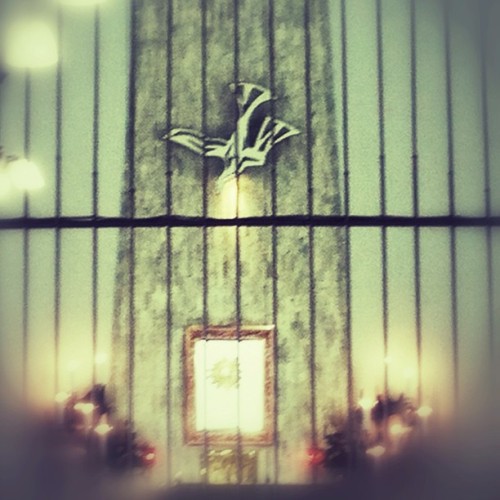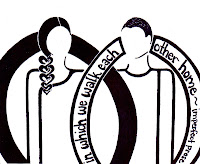A Posture of Reflectiveness
The mass this morning was beautiful. I'm glad we went to Pink Sisters today. It's always uplifting to hear mass at their chapel. One of the things I love about the priest's homily that encouraged me today was how he pointed out that we often celebrate the new year with so much noise and definitely want to welcome it with a big bang, yet he challenges us to be like Mary, who welcomed her new life in a posture of reflectiveness and silence.
I've found myself wanting to be surrounded by more silence as of late. Not so much to withdraw from noise but to gain a silence of heart so that I can engage more meaningfully with those around me. This Christmas vacation in Cebu has given me that. I still struggle with keeping the peace and often find myself anxious about certain thoughts that cause me discomfort (mostly about work) but I've realized today that when I simply keep thinking about God, His presence permeates the darkness and lifts the heaviness of anxiety away. So I reflect again upon the words of Ronald Rolheiser in "Forgotten Among Lilies"
Irrespective of the merits of these interpretations, the doctrine of the descent into hell is first and foremost a doctrine about love. God's love for us, and the power of that love to go all lengths, to descend to all depths and to go through virtually every barrier in order to redeem a wounded, huddled, frightened, paranoid, alienated and un-free humanity.
By dying as he did, Christ shows that he loves us in such a way that he can descent into our private hells. His love is so empathetic and compassionate that it can penetrate all barriers that we construct out of hurt and fear and enter right into our despair and hopelessness. We see this idea expressed powerfully in John 20. Twice John presents the disciples as huddled behind closed doors, locked in because of fear. Twice John has Jesus come through the locked doors and stand in the midst of that frightened depressed group and breathe peace into them. That image of Christ going through locked doors is perhaps the most consoling within our entire faith. Put simply, it means that God can help us even when we cannot help ourselves. God can empower us even when we are too weak and despairing, even minimally to open the door and to let him in.
I remember a holy picture that was given to me as a child. I saved it for years and its message has always haunted me in my darkest times. The picture shows a man, huddled and depressed in fear, in the dark behind a closed door. Outside stands Jesus with a lighted lantern, knocking softly on the door. The door has a knob only on the inside, the man's side. Jesus has no doorknob. He can only knock. Beneath the picture and everywhere in it by implication is written: Only you can open that door! Salvation depends upon your effort.
The picture is not wholly without its merits, but ultimately what it says is untrue. Christ does not need a doorknob. Christ can enter closed doors. Christ can enter rooms and hearts that are locked out of fear. The picture expresses a truth about human love. In the human arena, these are the dynamics of love; unless a heart opens from the inside, human love can only knock and it must remain outside. But God's love can descent into hell. Unlike our love, it is not left helplessly knocking at the door of fear, depression, hurt and sickness. It does not require that a person, especially a sick person, first finds the strength to make the initial move to open himself or herself to health.
In that lies ultimate consolation. There is no hell, no private hell of wound, depression, fear, sickness or even bitterness that God's love cannot and will not descend into.



Comments
Post a Comment